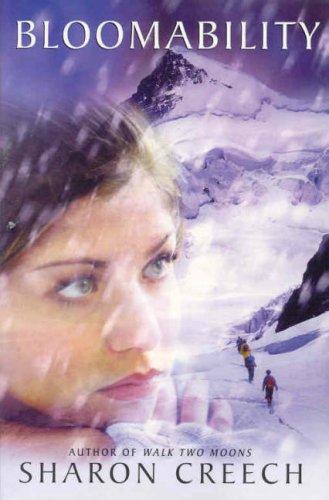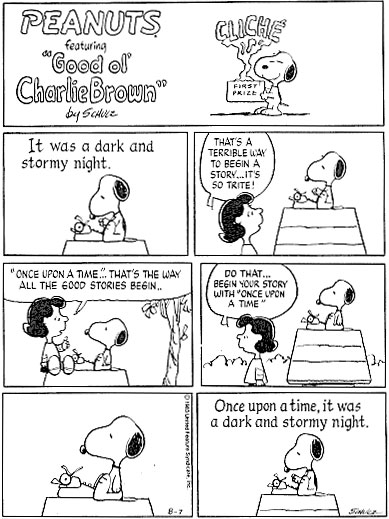There is a chance that I've spent as long writing the first
sentence of my novel as I've spent on the rest of the sentences put together.
That first sentence is crucial. If an editor doesn't like it...chances are they
aren't going to read to your next sentence, which just happens to be brilliant
and sparkly and memorable.
You'd think, with all of that polishing, my first sentence would
shine brighter than the rest of the book, but it doesn't. It's still just a
sentence. I've come to accept that though. Not every book can start with a
sentence mankind will never forget. Even Harry Potter's first sentence was
pretty unimpressive.
A Short History of My First Sentence
Looking through all the drafts I have saved, you can see the evolution of my whole novel
through this first sentence. You can also see the evolution of my writing,
which I hope will be heartening for some of you, and not just hilarious.
The sunlight
was slanting brightly through the trees when I looked up.
Wow. I'd forgotten that I
began my novel in first person--a tribute to Twilight, I'm sure. When I
realized how limiting first person could be, I switched to third. Never
underestimate how difficult it is to clean up a switch in point of view like
that. It's Gulf of Mexico big, and took
months, plus a lot of help from my sister Mindy, to fix.
That sentence isn't
terrible. However, the finished novel begins a whole year earlier than this
scene, which is now the beginning of chapter two, and does not contain that
particular sentence at all.
Jenny bolted
out the door and ran down the road the moment Lisa arrived to replace her.
At some point, I learned
the following rule: Begin with action. This is my misguided attempt to follow that
rule. It stinks. Unfortunately, this was the first sentence for quite a long
time, and probably made dozens of good-natured readers shake their heads in
despair. Luckily one of them called me on it, and the sentence changed to :
One of the
children had drawn a giant rainbow on the wall as a goodbye present for Jenny.
And then:
When one of
the children drew a giant rainbow on the wall as a goodbye present for Jenny,
she gave him a hug and told him she loved it.
This scene is also in
chapter two now. I knew I wasn't
starting in the right place, so for a while I groped around, searching for the
right starting spot:
The whole world was on fire with the news that Prince Rillion
had been allowed home from his long exile, but Jenny hardly noticed.
Not a bad sentence, all by itself. It is in the gray area, point
of view wise, but the real issue is that Prince Rillion is the villain in THE
SEQUEL to this book, and isn't even IN this book. This may explain why:
Arram sighed
and rolled his eyes at his best friend, Charles.
No. I didn't really decide to start the book like that, did I?
Come on, Arram. Be a man.
“Why are there humans in my formal dining room?”
Oh my gosh! This was by far the most fun draft for me to open.
This is backstory. WAY back, and it might or might not show up in the sequel. I
can't believe I considered putting it into this book.
Finally, I found my novel's true starting place. That's when the
real tinkering began:
Scott and
Jenny waited for Philip as long as they dared.
Jenny hadn’t been able to find Philip anywhere.
Philip was late.
And
finally...
It wasn't like Philip to be late, but of course, on this day, of
all days, he was.
I
like this sentence because it's got a hint of my voice in it. Voice is still a piece of writing that I
struggle to understand, but this feels voice-ier than almost any of the other
sentences.
I
also like it because it conveys a sense of mystery, which is something a good first
sentence should do. Whether or not they
care, readers are left with at least two questions. First of all, if it isn't
like Philip to be late, then where is he? And second, what makes THIS day more
important than the other days? Hopefully it's enough to make a reader move on
to the next sentence.
Some great links:
Here is a great blog post about tips for making your first sentence shine.
If you are writing some
form of speculative fiction, then the members of Hatrack can also be a
wonderful resource.
Examples from books I love:
Notice how each of these first sentences leaves you with an unanswered question:
Notice how each of these first sentences leaves you with an unanswered question:
Lark by Sally Watson:
The man in sober Puritan dress
paused and glanced behind him, for he thought he had heard a sound that was
neither squirrel nor bird.
In my first life, I lived with my
mother, and my older brother and sister, Crick and Stella, and with my father
when he wasn't on the road.
Book of a Thousand Days by: Shannon Hale
My lady and I are being shut up in
a tower for seven years.
It began one day in summer about
thirty years ago, and it happened to four children.
A Wrinkle In Time by: Madeline L'Engle
It was a dark and stormy night.
OK. Maybe that last one doesn't leave you with any
unanswered questions. However, I LOVED that sentence when I was a child (right
up there with "Last night I dreamed I went to
Manderly again.") I remember
wishing I could come up with something so simple yet beautiful. What a shock to
grow up and find out it is something of a purple-prosy joke. It was first
written by Edward Bulwer-Lytton in 1830, and has been used many times since,
like here:
Good Omens by: Terry Pratchett and Neil Gaiman:
It wasn't a dark and stormy night. It should have been, but
there's the weather for you. For every mad scientist who's had a convenient
thunderstorm just on the night his Great Work is complete and lying on the
slab, there have been dozens who've sat around aimlessly under the peaceful
stars while Igor clocks up the overtime.
And here:
There is also a video of Snoopy's creative process. It's pretty funny, but the only version I could find was not high quality. It's here, and the first 45 seconds are especially applicable to this blog post.
What's your favorite first sentence? And more importantly,
what makes it so great?



How fun!
ReplyDeleteI think one of the most beloved first sentences, and one that completely sums up the rest of the book has got to be:
'It is a truth universally acknowledged, that a single man in possession of a good fortune must be in want of a wife.' - Pride and Prejudice
Looking over my other favs, though, I'm suprised to find how mundane many are. Here are two I liked, but they are actually the first two sentences.
'I didn't know how long I had been in the king's prison. The days were all the same except that as each one passed, I was dirtier than before.' - The Thief
'"I've watched through his eyes, I've listened through his ears, and I tell you he's the one. Or at least as close as we're going to get."' - Ender's Game
Great post!
I love watching the evolution of your first sentence. I think your last one is a good one.
ReplyDeleteI think it is important to have a first sentence that makes the readers ask questions, just make sure that the readers are asking the right question. I've critiqued a few stories that had an awesome first sentence hook, but it didn't fit the story. I think it is more important for the beginning to fit the story than hook the reader.
You mentioned my favorite first line. "Last night I dreamed I went to Manderely again." I loved that book, and that line really sets the tone for the whole novel.
Great post, as always. :)
There were so many things I wanted to talk about but didn't have room, and Susan and MaryAnn mentioned two of them! First of all, I couldn't believe I wrote a post about first lines without mentioning Pride and Prejudice (and A Tale of Two Cities).
ReplyDeleteAnd second, I agree with MaryAnn about making sure that your beginning fits your story. Another thing that drives me crazy is the way so many of the current books start in a super-exciting moment and then backtrack to where the story should have started. It's the fall-out from too many authors trying to hook the reader (agent? editor?) with action right off the bat.
Of course, if anyone disagrees with me on that point, I'd love to hear your reasoning.
ReplyDeleteI got burned out on trying to perfect my first thirteen. I never even tried tackling my first sentence. Yet, I might get back into it that idea that the first sentence has a "question" to it sounds like a tent peg going in. I finally wrote an opening (pure inspiration, no effort) and I though it was great, but looking at it (expanding it liberally to include the first three sentences), it has that question and I think that's why its great.
ReplyDeleteOh and it definitely needs to fit. I'd rather have a poor hook than a theatrical one that "tricks" you into being interested.
I'm glad if I helped a tent peg go in! That's a great feeling.
DeleteI agree. I don't like it when an author sets the story up one way and spends the next fifty pages backtracking to show how they got there.
ReplyDeleteOne of my favorites is from Howl's Moving Castle by Diana Wynne Jones. She tells the reader exactly what to expect from her book with the very first sentence.
"In the land of Ingary, where such things as seven-league boots and cloaks of invisibility really exist, it is quite a misfortune to be born the eldest of three."
It establishes not only the genre of the book, but the main character's biggest obstacle: breaking out of fairy tale stereotypes to become her own hero.
My favorite first line is from Peter Pan, "All children, except one, grow up." J.M. Barrie.
ReplyDelete